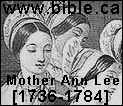232
Asterius Urbanus
- Asterius Urbanus, Writing against the later Montanists, he asked why they no longer had prophets after their prophet Montanus and his co-workers died. Urbanus noted that the true church would always have the prophetical gifts (prophecy, tongues, interpretation of tongues): "For the apostle [Paul] deems that the gifts of prophecy should abide in all the church up to the time of the final advent." (Asterius Urbanus, Extant Writings, 10, ANF; VII, 337.)
- This is a theological statement. Many non-charismatics today will make the same statement although they, themselves have not ever spoken in tongues. This provides not proof of actual tongues! Interesting that tongues was isolated to Montanus until he died! His disciples DID NOT continue to speak in tongues!
257
Novatian
- In Rome the Presbyter Novatian (d. c. 257) in his De Trinitate referred to the gift of tongues in the literal sense. Novatian had an eventful career as leader of a faction opposed to the concessions that Cornelius, Bishop of Rome, offered to those who had "lapsed" during the Decian persecution of the mid-third century. He was eventually chosen as rival Bishop of Rome. His followers remained orthodox in doctrine, but their continued emphasis on severe discipline gave them reason for separate existence after peace had been restored. Novatian wrote concerning the Holy Spirit: "This is He who places prophets in the Church, instructs teachers directs tongues, gives powers and healings, does wonderful works, offers discrimination of spirits, affords powers of government, suggests counsels, and orders and arranges whatever other gifts there are of charismata; and thus makes the Lord's Church everywhere, and in all, perfected and completed." (Novatian, Treatise Concerning the Trinity, xxix, ANF, V, 641.) (The Charismatic Movement, 1975, Michael P. Hamilton, p 67)
315 - 367
Hilary of Poitiers

- Hilary of Poitiers, "We who have been re-born through the sacrament of baptism experience intense joy when we feel within us the first stirrings of the Holy Spirit. We begin to have insight into the mysteries of faith, we are able to prophesy and to speak with wisdom. We become steadfast in hope and receive gifts of healing. Demons are made subject to our authority." (Tract on the Psalms, 64.14-15 Corpus Scriptorum Ecclesiasticorum Latinorum 22:246)
- Hilary of Poitiers, "The Holy Spirit is called a river. When we receive the Holy Spirit we are made drunk. Because out of us, as a source, various streams of grace flow, the prophet prays that the Lord will inebriate us. The prophet wants the same persons to be made drunk and filled to all fullness with the divine gifts, so that their generations may be multiplied. This means that the good earth is compared in the gospel simile to the seed of the word, bearing fruit thirty, sixty, and a hundredfold." [Hilary of Poitiers, re Psalms 64.9]
- Hilary of Poitiers, "The manifestation of the Spirit is through the effects which these powers produce." (Hilary of Poitiers, On the Trinity, 8:33; CorpusChristianorum 8:30; CChr 62a:340)
- Hilary of Poitiers, "This [the sequence of events in Jesus' baptism] was done so that we in our time might learn what has been fully realised in Christ. After the water-bath, the Holy Spirit rushes upon us from the gate of heaven, that we might bathe in the anointing of the heavenly glory, and that we might become sons of God through adoption spoken by the voice of the Father." (Hilary of Poitiers, c. 315 - 367, On Matthew, 2:6; SourcesChretiennes 254:110)
- Hilary of Poitiers, "Through the miracles that have been granted for the profit of everyone the gift of the Holy Spirit does not remain hidden." "Because the charisms are effective they are the pledge of our future hope." (Hilary of Poitiers, On the Trinity, 8:33; Corpus Christianorum 62a:345)
- In Gaul Bishop Hilary of Poitiers (d. 367) was an important Western challenger to Arianism. In his On the Trinity, although he made no direct claim to firsthand knowledge of the gift of tongues and did not develop a doctrine of the gifts, he implied acceptance of their place in ordinary Christian life. After quoting the list of gifts in 1 Corinthians 12, he commented: "Here we have a statement of the purpose and results of the gift; and I cannot conceive what doubt can remain, after so clear a definition of His Origin, His action, and His powers." (Hilary of Poitiers, On the Trinity, II, xxxiv, NPF, 2nd series, IX, 61.) In a subsequent chapter, he mentioned among other things the "gifts of either speaking or interpreting divers kinds of tongues" and concluded: "Clearly these are the Church's agents of ministry and work of whom the body of Christ consists; and God has ordained them." (On the Trinity, VIII, xxxiii, NPF, 2nd s., IX, 147) (The Charismatic Movement, 1975, Michael P. Hamilton, p 67)


